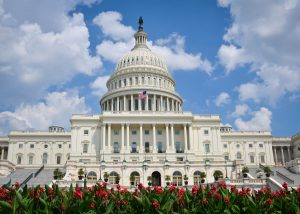Across the United States, evolving data collection and processing practices are driving digital services and socially beneficial research, but also pose increasing risks to individuals and communities that America’s existing sectoral privacy frameworks are insufficient to govern. In response, leaders in law and policy are considering more comprehensive approaches to privacy regulation, which establish baseline rights and protections for personal data throughout the economy. Years of negotiations in Congress culminated in the introduction of the bipartisan American Data Privacy and Protection Act in 2022; however, its fate remains uncertain. In the absence of federal legislation, five U.S. states—California, Virginia, Colorado, Utah, and Connecticut— enacted comprehensive consumer privacy laws between 2018-2022.
The Future of Privacy Forum provides expert, independent analysis of legislative and regulatory approaches to protecting data privacy interests. FPF does not typically support or oppose particular bills, but instead focuses on analyzing proposals in relation to existing privacy frameworks, sharing information on current data practices and technologies, and ensuring that data governance strategies are future-looking and adaptable.
FPF also engages with the broader privacy community through reports, blog posts, webinars, and educational programs such as the CPRA Law + Tech Series. It is our view that robust and durable policy outcomes can be achieved when all stakeholders are equipped to understand the key technologies, business practices, and legal mechanisms available to regulate privacy and data protection. FPF’s legislation work is led by Keir Lamont, Director.
Featured
Old Laws & New Tech: As Courts Wrestle with Tough Questions under US Biometric Laws, Immersive Tech Raises New Challenges
Extended reality (XR) technologies often rely on users’ body-based data, particularly information about their eyes, hands, and body position, to create realistic, interactive experiences. However, data derived from individuals’ bodies can pose serious privacy and data protection risks for people. It can also create substantial liability risks for organizations, given the growing volume of lawsuits […]
When is a Biometric No Longer a Biometric?
In October 2021, the White House Office of Science and Technology (OSTP) published a Request for Information (RFI) regarding uses, harms, and recommendations for biometric technologies. Over 130 entities responded to the RFI, including advocacy organizations, scientists, experts in healthcare, lawyers, and technology companies. While most commenters agreed on core concepts of biometric technologies used […]
A New U.S. Model for Privacy? Comparing the Washington Privacy Act to GDPR, CCPA, and More
By Stacey Gray, Pollyanna Sanderson, and Katelyn Ringrose Download a printable version of this report (pdf). As Congress continues to work toward drafting and passing a comprehensive national privacy law, state legislators are not slowing down. In Washington State, a new comprehensive privacy law is moving quickly: last week, the Washington Privacy Act (SSB 6281) […]
CCPA Amendment Update June 2019 – Twelve Bills Survive Assembly and Move to the Senate
By Michelle Bae and Jeremy Greenberg Privacy professionals seeking clarity on compliance with the California Consumer Privacy Act (CCPA) are monitoring numerous amendment bills introduced in the California State Assembly and the California State Senate. Twelve bills garnered the votes needed to pass the Assembly and moved to the Senate for further revision and voting. […]
FPF Comments on the Washington Privacy Act, SB 5376
Today, the Future of Privacy Forum submitted comments to the Washington State Senate Ways & Means Committee on the proposed Washington Privacy Act, Senate Bill 5376. FPF takes a “neutral” position regarding the Bill, and makes a few important points. FPF commends the Bill’s sponsors for addressing a broad set of individual data protection rights. […]
Calls for Regulation on Facial Recognition Technology
We look forward to working with Microsoft, others in industry, and policymakers to “create policies, processes, and tools” to make responsible use of Facial Recognition technology a reality.









